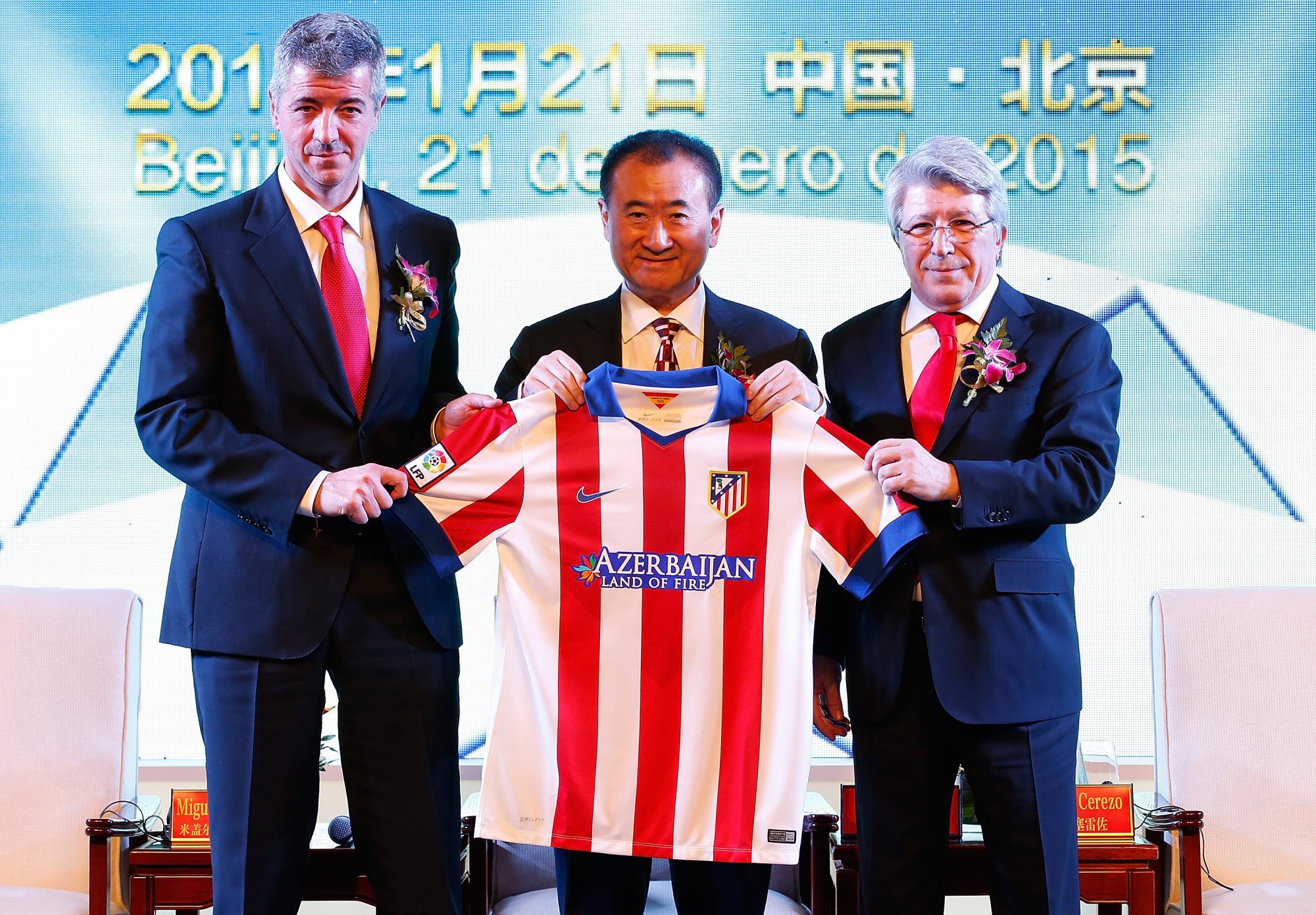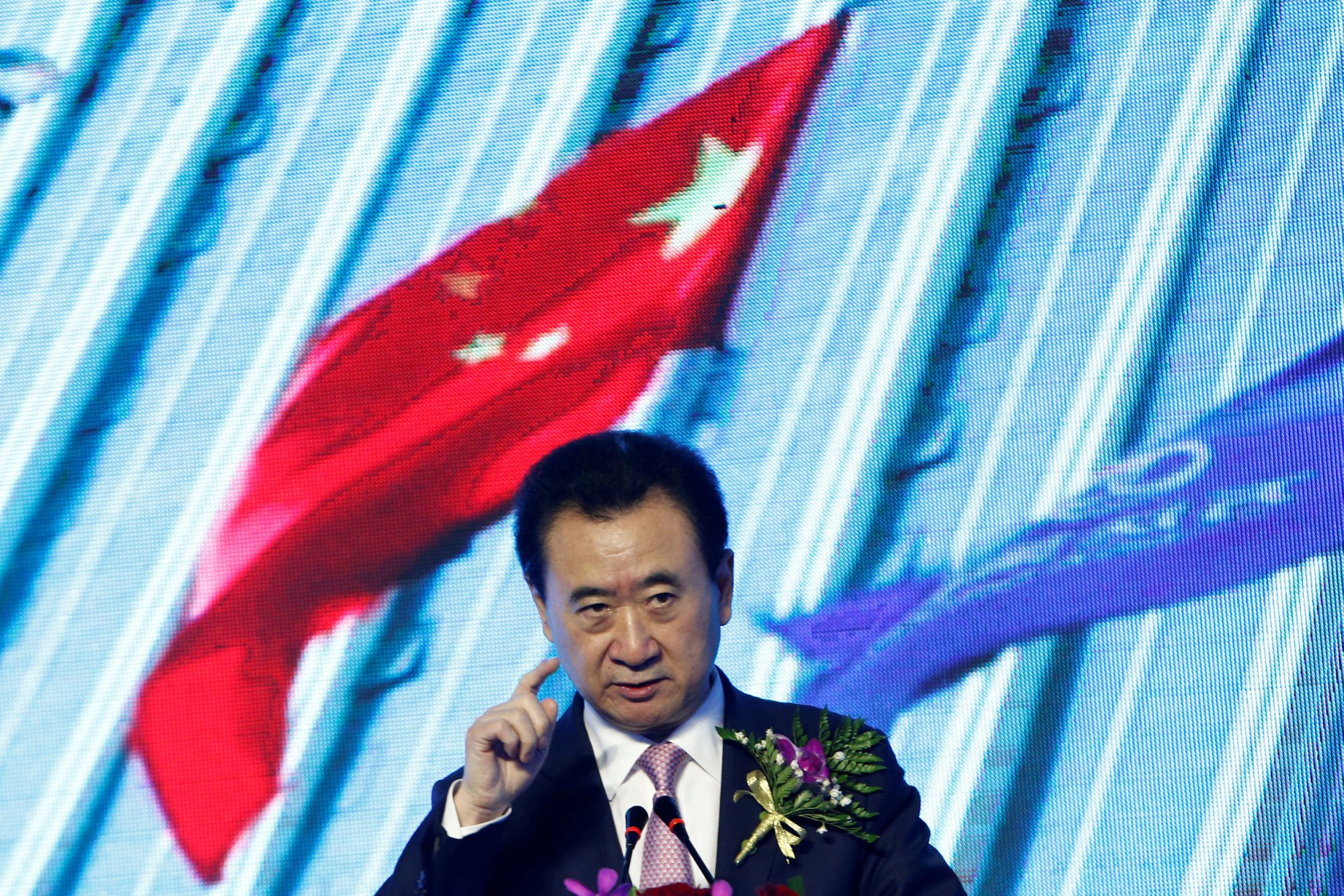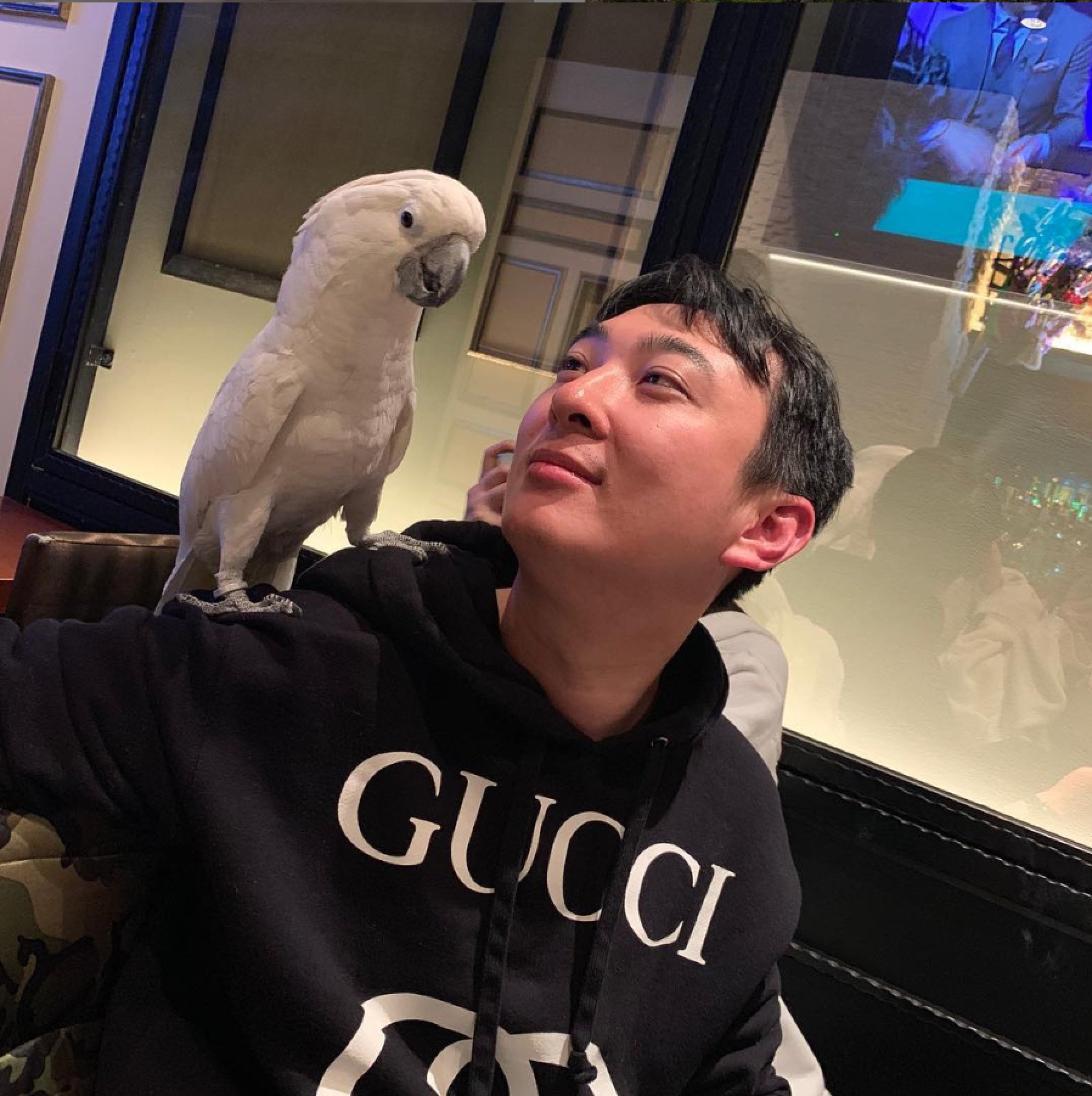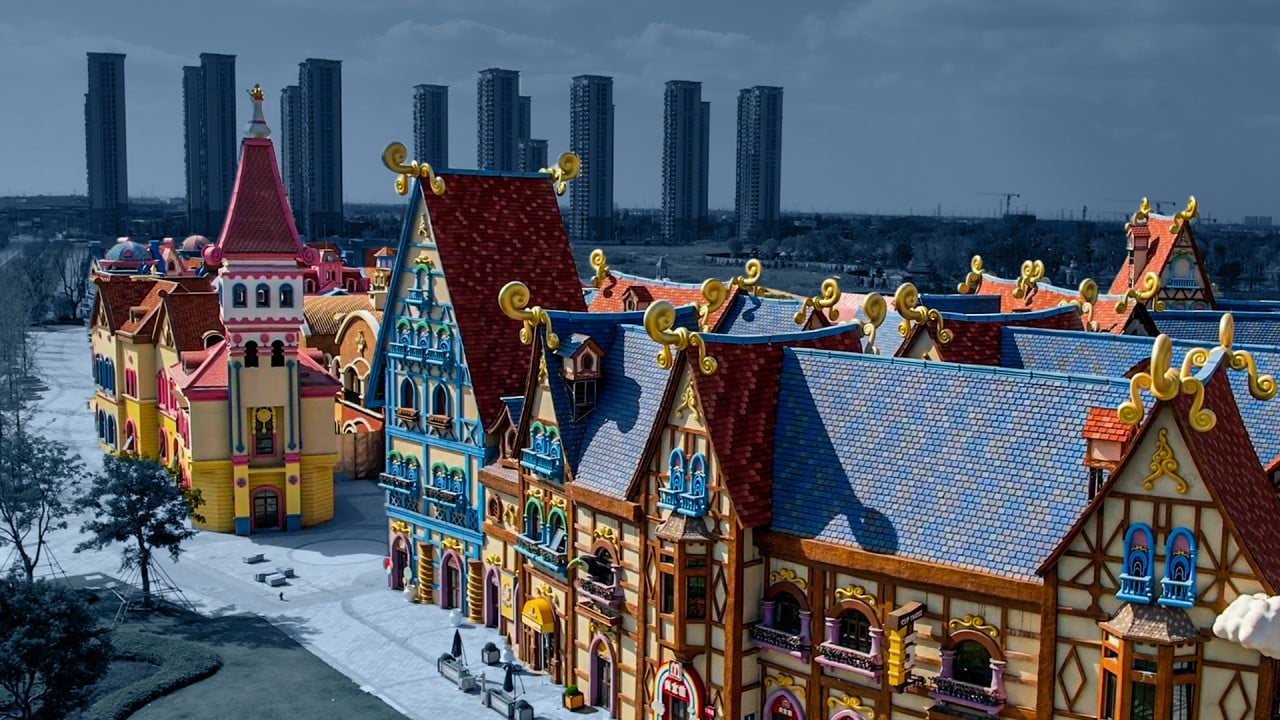The rise and fall of Wang and his company is an archetypal story of how a major private business drifts along China’s economic tides and policy cycles.
“It’s a very good case to look at, as it survived multiple adjustments in China’s property sector and avoided the fate of many other companies,” said Tang Dajie, a researcher at the Beijing-based China Enterprise Institute think tank.
That speed was just phenomenal. I was blown away by that
But while business giants including Evergrande Group and HNA Group collapsed under mountains of debt, Wanda – which started shifting its business model early to become a light-asset company – has been able to survive.
“It was really unbelievable how fast this project had grown and it gave me a deep impression of the efficiency of the company,” he said.
“That speed was just phenomenal. I was blown away by that.”
With its business already expanding to tourism, entertainment and sports, the company had also started to expand globally, using bank loans to make acquisitions around the world.
Under the slogan of “exporting Chinese culture to the world”, Wanda was poised to be a global lifestyle giant with many renowned brands and ambitious projects.
It was a time when the Chinese government was encouraging businesses to “go out” to the world, and in 2014, overseas investment by Chinese firms was 45.6 times that of 2002, representing a compound annual growth rate of 37.5 per cent.
Joining in the craze for overseas acquisitions was HNA, who facilitated their deals with high leverage, which later aroused risk concerns. The frenzy also sparked speculation of asset transfer.
“I earned my own money. I invest it wherever I like, as long as it’s not printed by me,” Wang said during a forum organised by state broadcaster CCTV in 2015.
And despite a quick clearing of his overseas assets in the following years amid a government crackdown, Wang insisted Wanda was a multinational company.

“Every year, many foreign colleagues attend the annual meeting, and work reports are also interpreted simultaneously. These are all signs of internationalisation,” Wang said during the company’s annual meeting in early 2019.
In 2017, against the backdrop of massive foreign exchange outflows and tightening of capital controls, then-minister of commerce Gao Hucheng publicly warned against “blind overseas investments” by Chinese firms, saying it posed great risks and vowed to “actively provide guidance”.
The remarks were followed by a joint directive from multiple other departments, including the central bank, to curb such investments, singling out firms in the areas of real estate, hotels, cinemas and sports clubs – all of which were covered by Wanda.
Domestic banks soon put the instructions into action, requiring Wanda to repay loans for several overseas projects it had acquired in advance, which marked the beginning of its asset sales to remain afloat.
In 2017, Wanda lost 11.5 per cent in total assets, mainly due to the sale of 13 cultural and tourist projects and 77 hotels in China, Wang said during its annual meeting in 2018.
It had also cleared many of its overseas assets, leaving only 7 per cent of its total, according to Wang.
“Why do I specifically mention this? Last year, some people said that Wanda had transferred a large amount of assets overseas. The figure proves that this is completely untrue,” he said at the 2018 annual meeting.
But its debt only ballooned in the following years, as Wanda’s dream of delisting from the Hong Kong stock market and returning to the A-share stock market in mainland China was shattered, the real estate market started turning downwards and the coronavirus pandemic hit malls and cinemas.
The slogan, though, did not disappear from the official narrative until late 2022, as Beijing abandoned its zero-Covid policy after three years of widespread lockdowns.
In the process, a wave of debt defaults swept China’s real estate industry, and deleveraging became a main theme in government directives.
Like Hui Ka Yan, most real estate developers can’t actually escape the wave because they have got heavy assets
Wang was among the first real estate tycoons to encounter trouble, but with Wanda’s strategy having turned to “light-asset” since 2017, he was also one of the few that survived the multiple policy adjustments, said Beijing researcher Tang.
Wanda and Evergrande did not respond to requests for comment.
As a former soldier and low-ranking government employee, “Wang understands both the outside and the inside of the system, both the market and power, and both what he can control and what he cannot,” Sun wrote in a WeChat post in 2022.
“Therefore, he understood when others did not understand, and he took action when others hesitated.”

Today, Wanda’s selling spree is embodied by the sale of Wanda Plaza in Beijing. Staff, though, would continue to work in the headquarters, financial news provider wallstreetcn.com reported last month.
In the mid-2010s, when Wang gave the “small goal” advice, he was easy to meet, outspoken and ready to accept interviews.
“I remember going to a presentation of his, where his team was comparing him to big figures such as [Microsoft founder] Bill Gates and [Berkshire Hathaway founder] Warren Buffett,” Hoogewerf said.
“You sort of got a sense of huge ambition in the network.”
But people had already started warning against the risk posed by his business model, saying it was “quite dangerous commercially” as debt accumulated with Wanda Plaza’s mushrooming across China, Hoogewerf added.
A firm believer of “wealth lies in risks”, Wang made famous remarks on being bold during the same period, including whether you study in Tsinghua or Peking University “it doesn’t work without boldness”.
Many business leaders would hide after going through all the ups and downs, but Wang didn’t
And boldness was one of the major characteristics of the first generation of Chinese entrepreneurs who drove China’s economic rise, Tsinghua University’s Sun added.
“Being brave, fearless and adventurous is part of their spirit of barbaric growth,” he said.
But it has apparently become inapt in recent years, as Beijing has stressed risk-management and growth by using existing resources amid a pursuit of a stable post-pandemic economic recovery.
And as Wang continued to clear his assets, he also kept silent in public. Since 2018, he has rarely been seen in interviews or presentations, and since 2019, Wanda has stopped publishing his annual speech.
The last time Wang Sicong appeared in mainstream media was in November, when, as chairman of Beijing Huanju Commercial Management, he met with the Communist Party chief of Taian in Shandong province to sign a cooperation agreement on a fitness and leisure complex.

Having openly refused to take over his father’s business, Wang Sicong still has a controlling stake in 47 companies, mainly sports, entertainment and consulting, according to Chinese corporate data provider Qichacha.
Wang senior has spent a big part of the last year examining potential projects in culture and tourism, as the industry has witnessed a bigger rebound compared to other sectors after the pandemic.
And in March, a consortium of investors including Asia-focused private equity investment group PAG, Citic Capital and Ares Management agreed to inject 60 billion yuan (US$8.3 billion) into Wanda’s Newland Commercial Management unit.
“It’s hard to say where Wanda is going in the future. But for now, it seems it is in a relatively safer position compared with other industry players,” Tang from the China Enterprise Institute added.
“Many business leaders would keep a low profile after going through all the ups and downs, but Wang didn’t.”
As business confidence remained low, the directive “brought a refreshing rain to the private economy, which is in a tough period, and made us full of confidence in the future,” he said in the statement.
“In China, government policy is always crucial for private companies, both on their way up and now on their way down,” said Chen Zhiwu, chair professor in finance at the University of Hong Kong.
“Now, many private businesspeople understand that both economic and political reforms have to go hand in hand; without one, the other cannot sustain in the long run.
“They know that the fate of private companies will keep changing unless and until systematic reforms, both economic and political, are performed.”
Additional reporting by Ji Siqi



